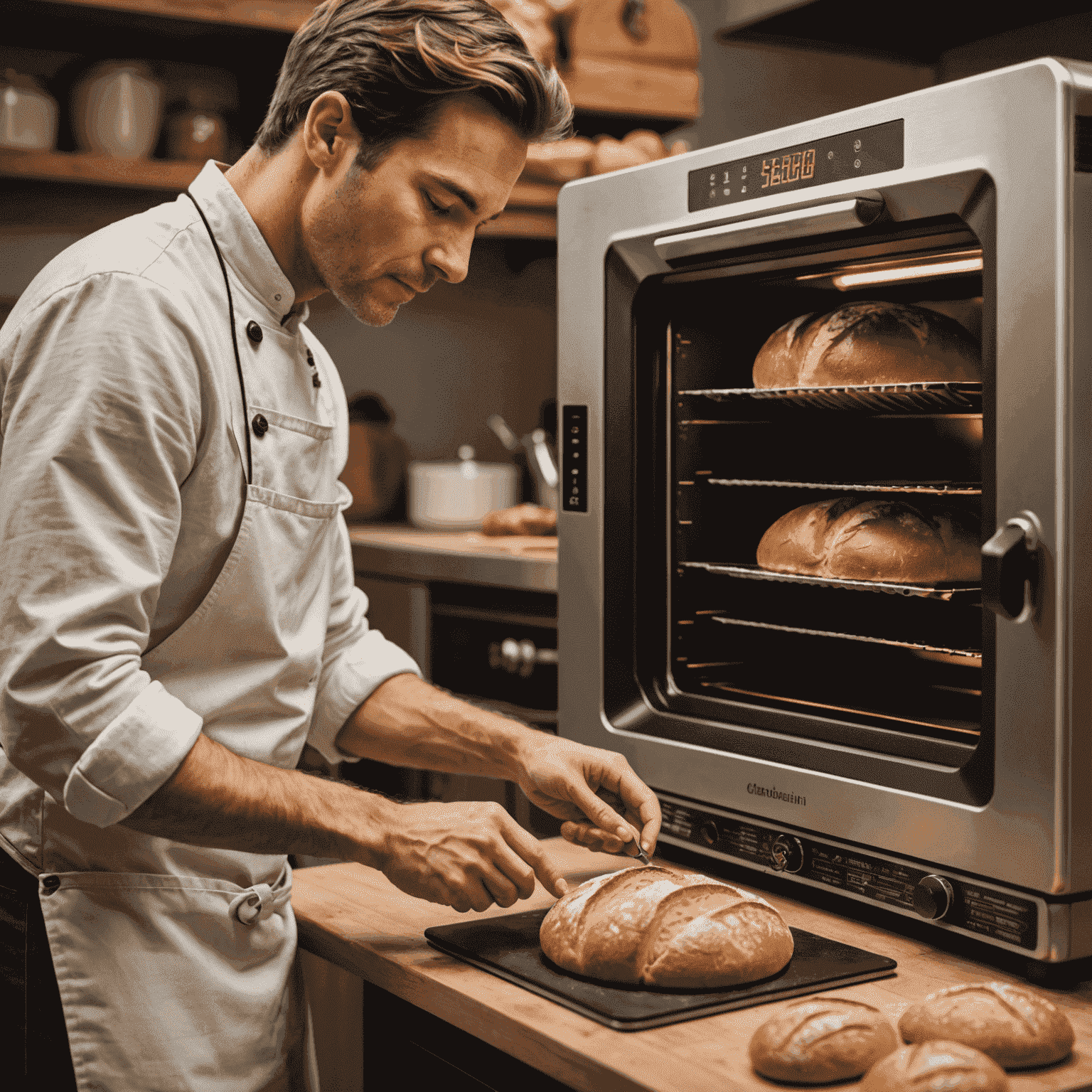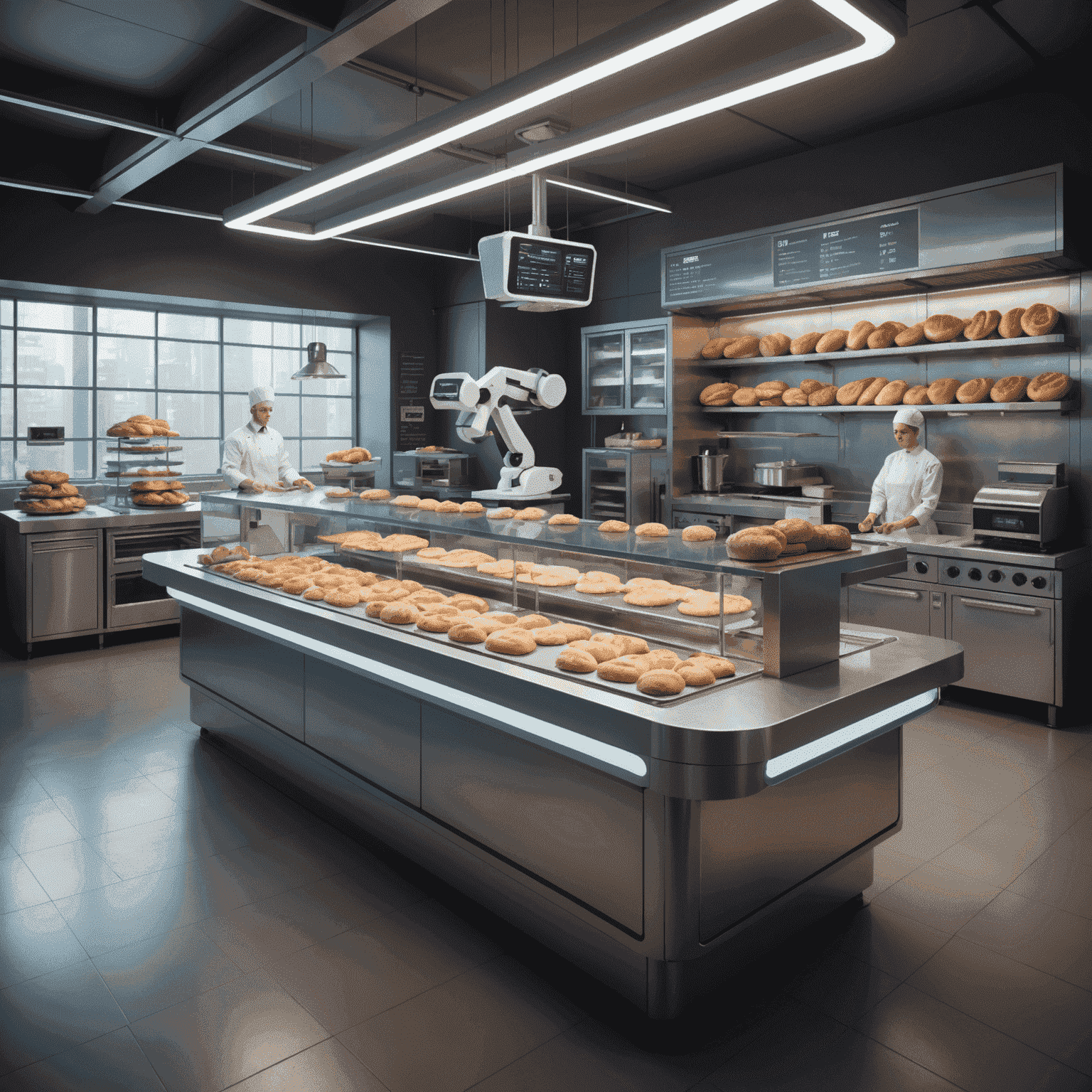Technology in the Bakery
Examining how digital tools and smart appliances are revolutionizing the baking industry in the United States.

The aroma of freshly baked bread has always been a hallmark of traditional bakeries. However, in recent years, this comforting scent has been accompanied by the hum of advanced technology. The baking industry in the United States is undergoing a significant transformation, with digital tools and smart appliances at the forefront of this revolution.
Smart Ovens: Precision Baking
One of the most notable advancements in bakery technology is the introduction of smart ovens. These sophisticated appliances offer unprecedented control over baking parameters, ensuring consistency in every batch. With features like precise temperature control, humidity adjustment, and even AI-powered baking programs, these ovens are taking the guesswork out of baking complex yeast doughs and delicate pastries.

Digital Inventory Management
Gone are the days of manual stock-taking and ingredient ordering. Modern bakeries are implementing digital inventory systems that track ingredient usage in real-time. These systems can automatically place orders when supplies run low, ensuring that bakeries never run out of essential ingredients for their yeast doughs and other bakery products.
3D Food Printing
While still in its early stages, 3D food printing is making waves in the baking industry. This technology allows for the creation of intricate designs and custom shapes that would be difficult or impossible to achieve by hand. From personalized wedding cake toppers to complex sugar sculptures, 3D printing is opening up new possibilities for bakery product customization.

Data Analytics for Recipe Optimization
Big data isn't just for tech companies anymore. Bakeries are now using data analytics to optimize their recipes. By analyzing customer preferences, sales data, and even weather patterns, bakeries can adjust their offerings to maximize appeal and minimize waste. This data-driven approach is particularly useful for perfecting yeast dough recipes, which can be sensitive to environmental factors.
Virtual Reality Training
Training new bakers has traditionally been a hands-on process. However, some bakeries are now experimenting with virtual reality (VR) to provide immersive training experiences. VR can simulate various baking scenarios, allowing trainees to practice techniques and learn about equipment operation in a safe, controlled environment before working with actual ingredients and machinery.
The Future of Baking
As technology continues to advance, we can expect to see even more innovations in the baking industry. From AI-powered flavor prediction algorithms to robotic assistants that can handle repetitive tasks, the bakeries of tomorrow will likely be high-tech hubs of culinary creativity.
While some may worry that technology might remove the artisanal touch from baking, many bakers are finding that these tools actually free them up to focus on the creative aspects of their craft. By handling the precision and consistency, technology allows bakers to experiment with new flavors, textures, and presentations, pushing the boundaries of what's possible in the world of baked goods.

As we look to the future, it's clear that technology will play an increasingly important role in shaping the American baking industry. From small artisanal shops to large-scale operations, bakeries that embrace these digital tools and smart appliances will be well-positioned to meet the evolving demands of consumers while maintaining the quality and craftsmanship that make bakery products so beloved.